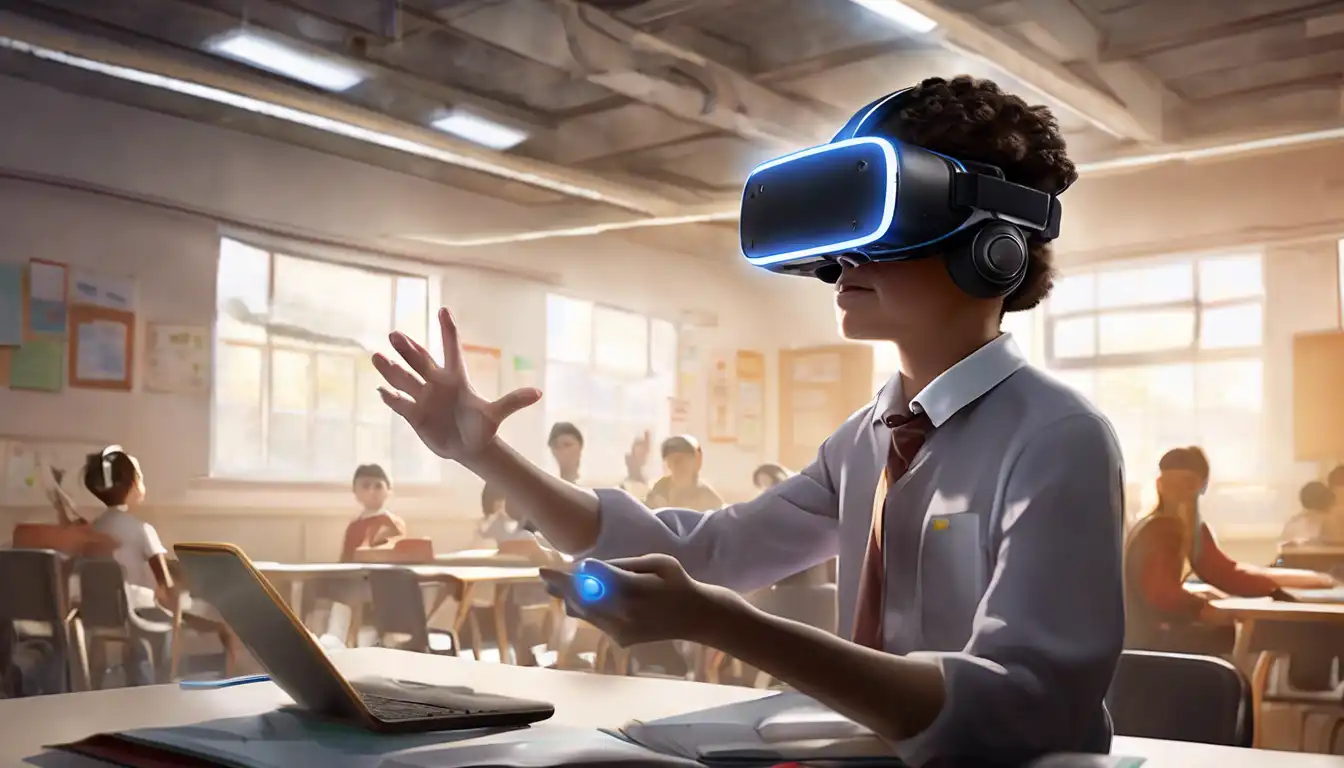The Transformative Impact of Virtual Reality on Learning and Development
Virtual Reality (VR) technology has been making waves across various sectors, but its potential in education and training is particularly noteworthy. By creating immersive, interactive environments, VR offers unparalleled opportunities for experiential learning, skill development, and engagement. This article delves into how VR is reshaping the educational landscape and training methodologies.
Immersive Learning Experiences
One of the most significant advantages of VR in education is its ability to simulate real-world scenarios. Students can explore historical events, dive into the human bloodstream, or even walk on Mars, all from the safety of their classroom. This level of immersion enhances understanding and retention, making complex subjects more accessible and engaging.
Enhanced Training Programs
In the realm of professional training, VR is a game-changer. From medical students practicing surgeries to pilots honing their flying skills, VR provides a risk-free environment to learn and make mistakes. This hands-on approach accelerates the learning curve and prepares individuals for real-life challenges more effectively than traditional methods.
Accessibility and Inclusivity
VR technology also democratizes education by making learning experiences available to students regardless of geographical or physical limitations. Virtual classrooms can connect learners from around the globe, and those with mobility issues can participate in activities that would otherwise be inaccessible to them.
Challenges and Considerations
Despite its benefits, the integration of VR into education and training is not without challenges. The cost of VR equipment and the need for technical support can be prohibitive for some institutions. Additionally, ensuring that VR content is pedagogically sound and aligns with curriculum standards is crucial for its success in educational settings.
Future Prospects
As VR technology continues to evolve, its applications in education and training are bound to expand. With advancements in AI and machine learning, future VR platforms could offer personalized learning experiences, adapting in real-time to the user's needs and progress. The potential for VR to transform education and training is immense, promising a future where learning is more interactive, engaging, and effective than ever before.
For more insights into how technology is shaping education, check out our article on The Role of AI in Education.
